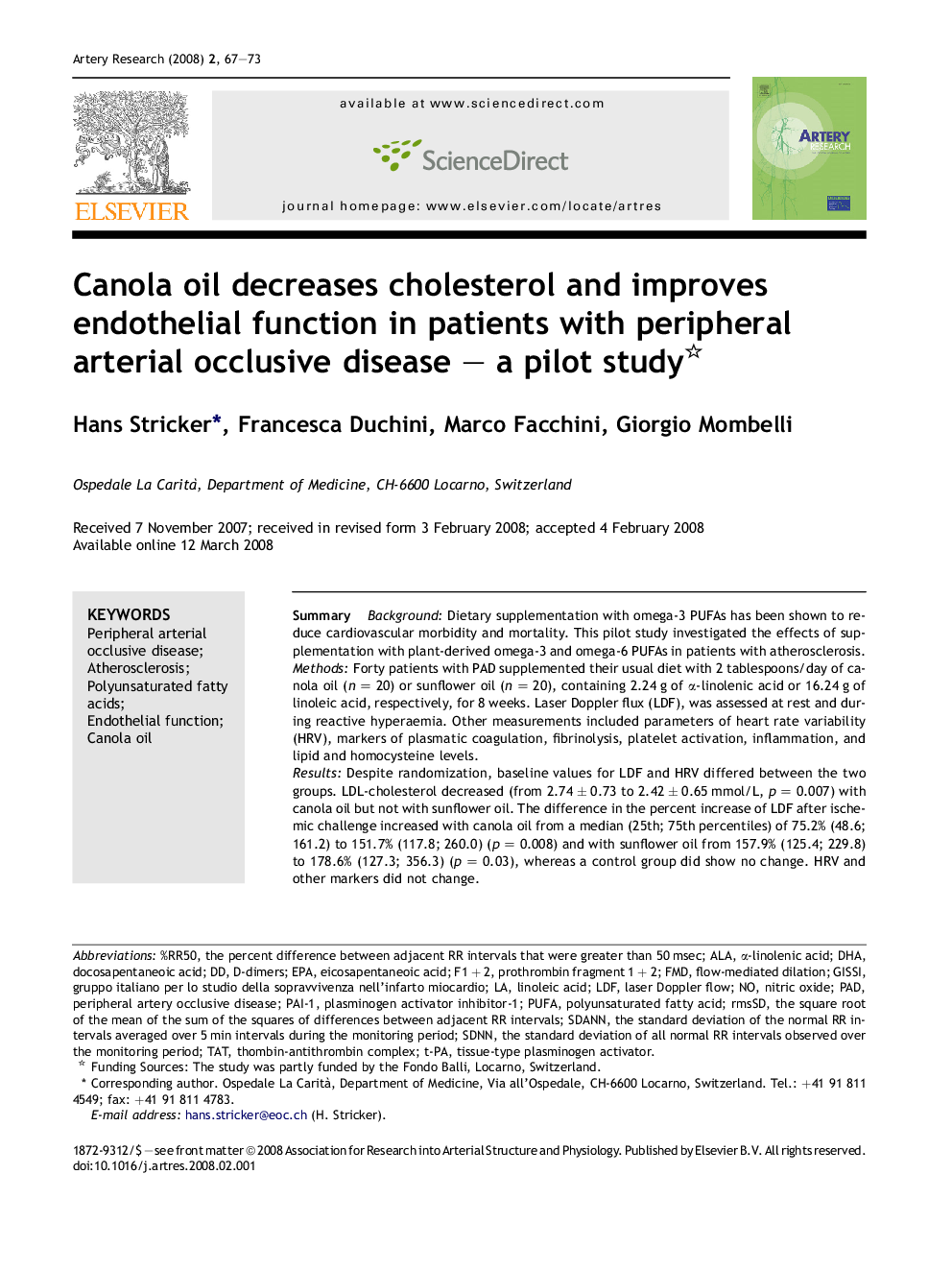| Article ID | Journal | Published Year | Pages | File Type |
|---|---|---|---|---|
| 2892397 | Artery Research | 2008 | 7 Pages |
SummaryBackgroundDietary supplementation with omega-3 PUFAs has been shown to reduce cardiovascular morbidity and mortality. This pilot study investigated the effects of supplementation with plant-derived omega-3 and omega-6 PUFAs in patients with atherosclerosis.MethodsForty patients with PAD supplemented their usual diet with 2 tablespoons/day of canola oil (n = 20) or sunflower oil (n = 20), containing 2.24 g of α-linolenic acid or 16.24 g of linoleic acid, respectively, for 8 weeks. Laser Doppler flux (LDF), was assessed at rest and during reactive hyperaemia. Other measurements included parameters of heart rate variability (HRV), markers of plasmatic coagulation, fibrinolysis, platelet activation, inflammation, and lipid and homocysteine levels.ResultsDespite randomization, baseline values for LDF and HRV differed between the two groups. LDL-cholesterol decreased (from 2.74 ± 0.73 to 2.42 ± 0.65 mmol/L, p = 0.007) with canola oil but not with sunflower oil. The difference in the percent increase of LDF after ischemic challenge increased with canola oil from a median (25th; 75th percentiles) of 75.2% (48.6; 161.2) to 151.7% (117.8; 260.0) (p = 0.008) and with sunflower oil from 157.9% (125.4; 229.8) to 178.6% (127.3; 356.3) (p = 0.03), whereas a control group did show no change. HRV and other markers did not change.ConclusionsCanola oil containing omega-3 PUFAs may confer cardiovascular protection by improving endothelial function and lowering LDL-cholesterol, but additional studies are warranted.
